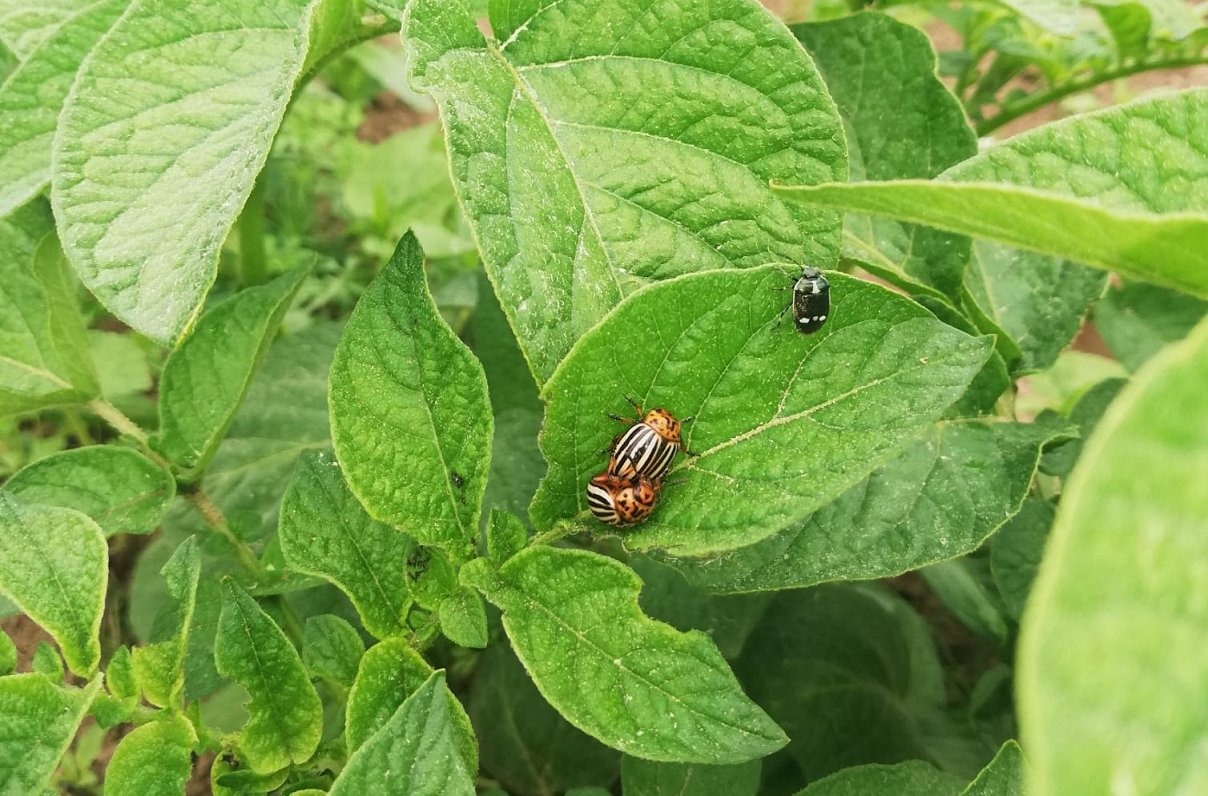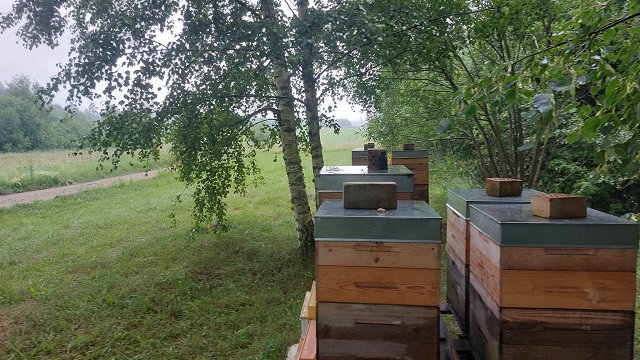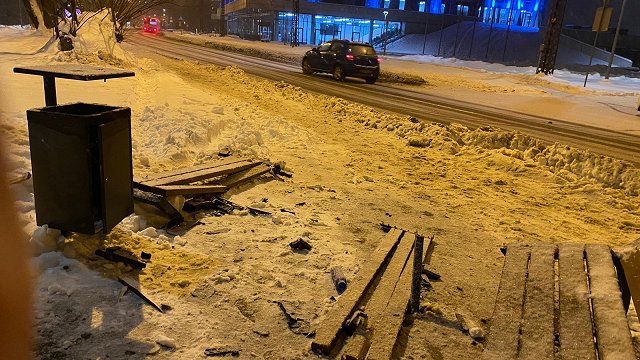Latvian Radio has received a report that the Colorado potato beetle infestation has already started in the Trikāta parish. The owners of small allotments have started to fight back and are already collecting the beetle. These pests have also infested fields of spuds in other districts.
What do the major potato growers have to say? Kalna Jurģēni farm in Iecava municipality grows potatoes on about 20 hectares of land. The farmer, Juris Sidorenkovs, said:
"The weather is cool now in June and it's like there are no [beetles], but I think there definitely will be. Last year there were a lot of them, but finally one preparation has been authorized that can cope. Otherwise, it would not be worth growing potatoes in Latvia," he pointed out.
The fact that these pests are on the increase is also confirmed by the State Plant Protection Service (VAAD), where the first reports of these pests have been received. The Service advises farmers to check what is happening in each field. If there were no potato fields in the vicinity in previous years, the beetles are likely to appear later. However, if potatoes are planted where the crop has grown before, it is clear that they will grow next to the beetles' overwintering sites. The important thing is to spot pests early.
Anitra Lestlande, Head of the Integrated Plant Protection Unit at VAAD, said: "The beetles are not to blame, they don't eat the potatoes, their larvae do. To control them, plant protection products are available in garden shops without certificates. These will not take any beetles away. This means that even if this authorized plant protection product, or insecticide, is sprayed, the beetles will not die. People do not really understand that. They expect the beetles to die after spraying, but they don't, because all insecticides work against the larvae."
What should farmers affected by this plague do? Lestland advised: "As long as you only see beetles, pick them off mechanically by hand every day or twice a day. Now the weather is cooler, so [pest] development - egg-laying and larval hatching - is somewhat slowed down. When the weather is hot, above 20 degrees, and it does not rain, development will be faster and it will only take a few days from eggs to larvae."
Aiga Kraukle, head of the Union of Potato Growers and Processors, pointed out that the problem mainly affects smallholdings and some organic farms: "These are incubation sites. In reality, they have close to zero chance of controlling the pest, so they breed there. Every year it becomes more difficult. Everybody wants to get greener and they also want to ban professionals from using [plant protection products]."
Professional potato growers have access to one product to combat these pests, but its use has been reduced from twice to once a season. It only affects the leaves and does not reach the tubers, Kraukle added.
At the moment, it looks as if there could be a good potato harvest this year. The humidity could be higher, but the weather conditions are favorable for a sufficient autumn crop. Last year, potatoes were grown on 5,882 hectares, more than the year before.






























